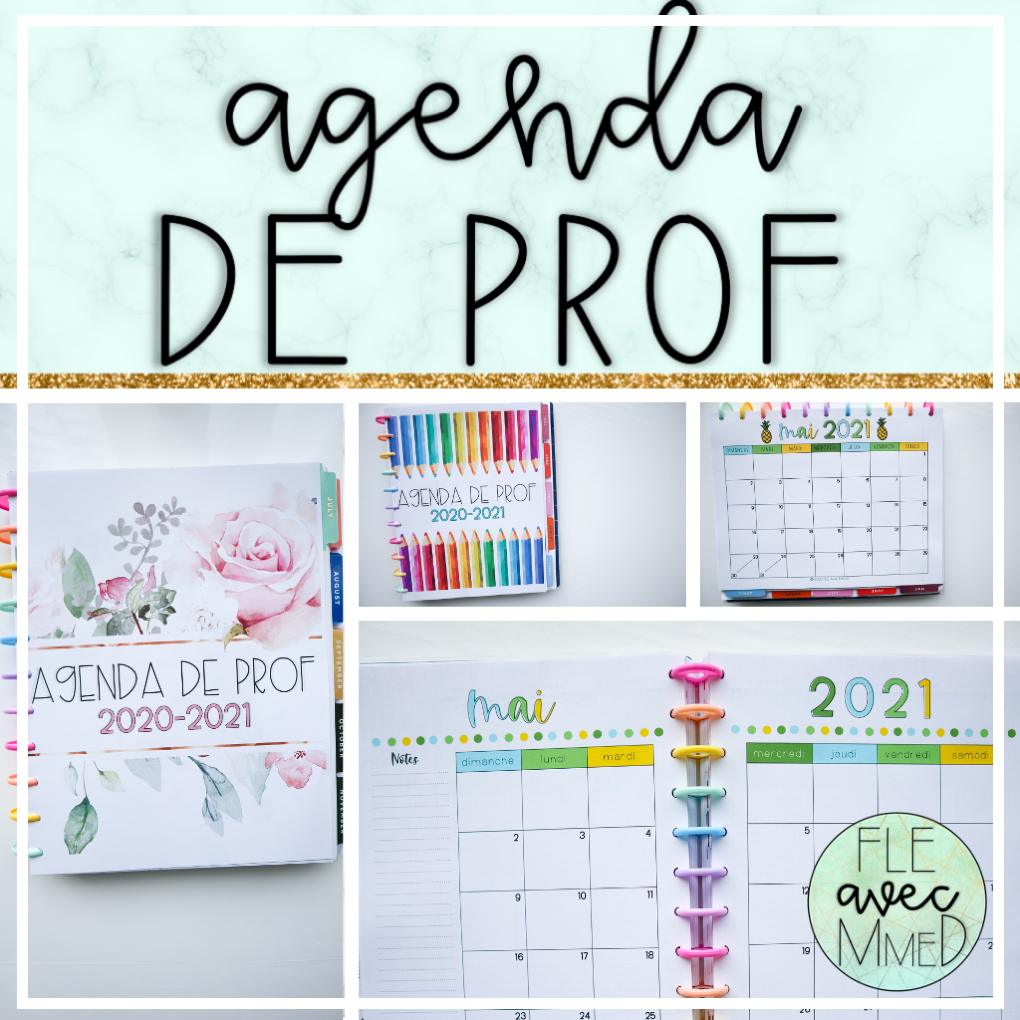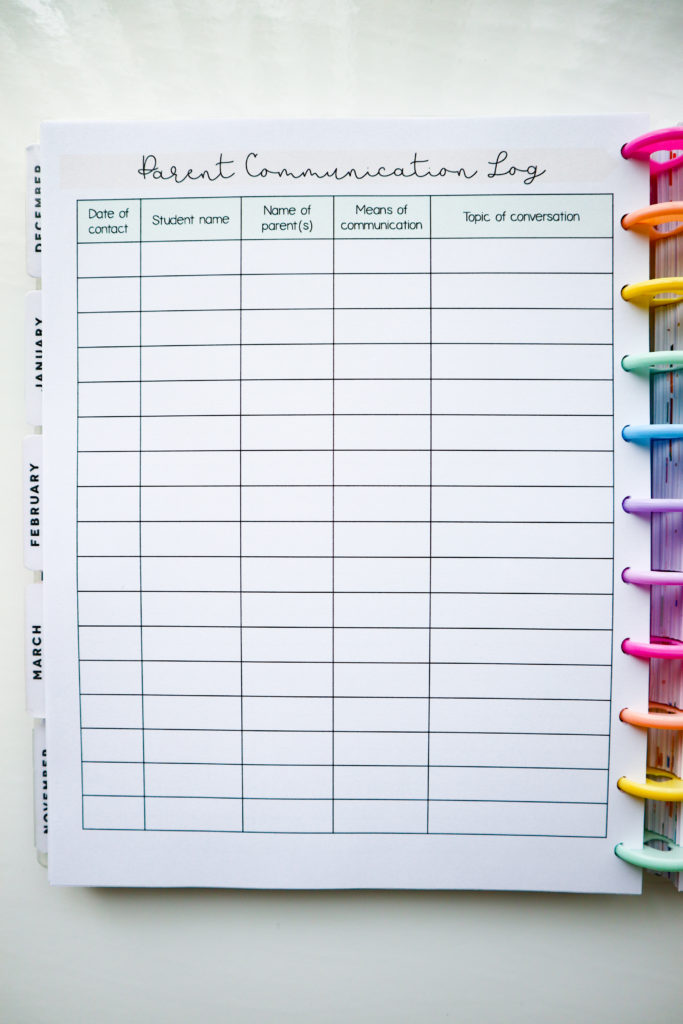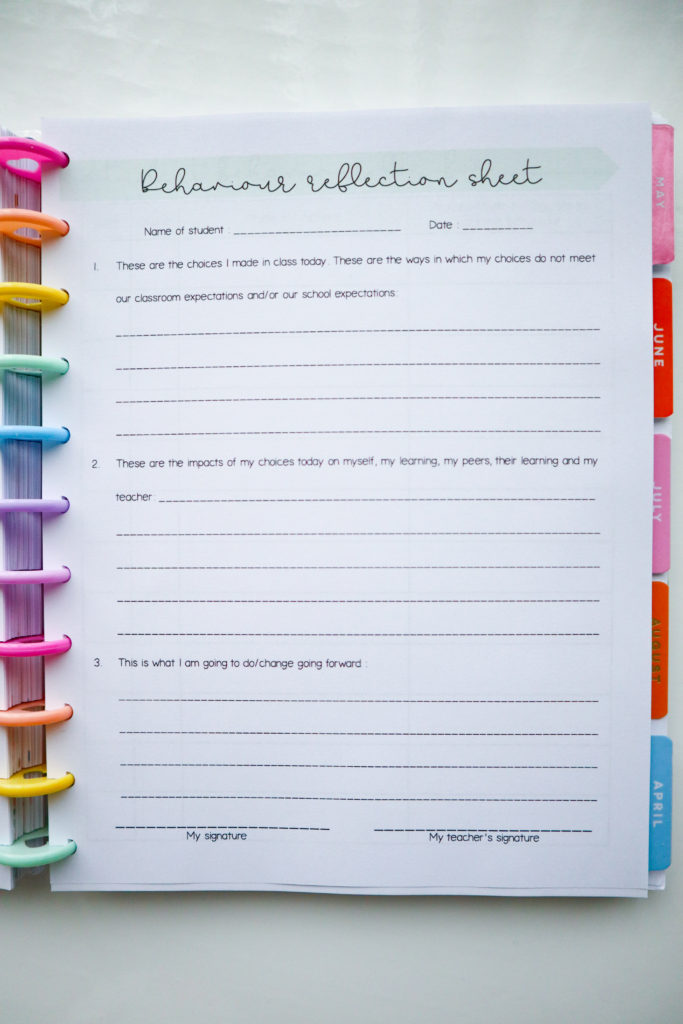
The school year has come to an end and you may already be thinking about how to improve our classroom routines for the following year. Today I am going to be sharing essential Teacher planner trackers with you!
Every summer, I choose one major thing that I want to overhaul for the following school year.
After my second year of teaching, I chose to focus on improving record/data tracking and documentation of all communication. As a high school teacher with over 120 students, I found this aspect of teaching to be incredibly time-consuming.
As a result, I developed classroom trackers to track student engagement, progress, behaviour and all communication.
The importance of keeping detailed records
Firstly, I want to prepared in case admin want to see documentation on student support & parent communication.
Today I am going to share with you 5 essential documents I use to organize all of the aforementioned information.
All of these documents are geared toward high school classes. You can easily create your own trackers. However, all trackers mentioned in this article (and more) are all available in my French teacher planner resource.

Teacher planner tracker 1 : student allergies
Keeping all of my students alive and healthy is my biggest priority in the first week of September.

In my district, Student health information is available on an online system that isn’t the most convenient to navigate. There are a lot of pages to click through (and 150+ names) to find this crucial information.
Therefore, I prioritize finding each and every severe allergy and recording it on this page. This way, I am immediately prepared to inform students what allergens are not permitted in the class.
When meeting parents at the Parent-Teacher Night, I also want to assure parents that I know all of the information to keep their child healthy in my classroom.
On this tracker, I record data such as name, which class the student is in, the allergen, the nature of their allergic reaction and whether they use an epi-pen and where the epi-pen is located.
Crucial information for substitutes & teachers-on-call
When I was an on-call teacher, I noticed that this information was not always provided to guest teachers.
In my opinion, this information needs to be presented to any and all teachers in your classroom, regardless of elementary or high school.
Teacher planner tracker 2 : student progress log
This document is to help you keep track of students who are failing in your courses. In my district, we are required to communicate students’ standing in the course if they are in danger of failing.
Teachers often reach out to students’ parents numerous times throughout the year to inform them of outstanding assessment and progress.
In my second year of teaching, I had a weird year where I had SO many students failing my introductory French classes. There were dozens of students who were not attending classes and not completing any assessment.
I could not keep track of the emails I had sent, the subject matter and who I still needed to be in contact with. The sheer volume of emails and communication was astounding.
For these reasons, a progress log is so helpful because I keep a separate record for each child who is failing and/or has numerous outstanding assessments.
Every single time that I communicate with counsellors, parents, admin or other professionals in the school, I quickly jot down the communication and what actions transpired as a result.
This type of tracking is also fantastic because if you are ever asked for evidence that you did in fact communicate students’ progress, you can quickly pull out a complete record of communication!
Teacher planner tracker 3 : parent communication log

This tracker is similar to the one above. However, the goal of this tracker is to keep a record of ALL communication with parents, regardless of the topic of conversation or the means.
This is particularly helpful if you meet with some parents numerous times over the course of the school year.
Keeping a record of dates, times, topics of conversation, means of communication and any actions or communication that transpired, as a result, are important in case a parent claims that you did not communicate with them or provide the appropriate support.
You should especially be doing this for parent meetings outside of conferences AND phone calls! Emails can also tend to disappear from your inbox, so keeping track of this is also really helpful.
Teacher planner tracker 4 : student behaviour log
Over the past three years, I have worked with many students with varying needs and behaviour challenges. I learned too late that I should be keeping a behaviour log for students demonstrating challenging behaviour.
For instance, did a student throw a chair across the room today?
Or did you catch a student eating their eraser?
It is really important to record all of the (factual) information regarding these types of events in case you have to communicate with administration or the school-based team.
In addition, you may notice patterns over time and while you may not forget the actual event, you want to keep a note of where you were, what the child was doing, what the class was doing (triggers), how you dealt with the event and what actions/communication transpired as part of the follow-up.
I want to reiterate here that you should only record facts here. Try your best to remove the emotion out of the situation and remain as neutral as possible. The best way to do this is to record the series of events (what happened first, then, followed by…etc.)
Teacher planner tracker 5 : behaviour reflection sheet

Classroom management can be one of the most difficult aspects of the job for new and experienced teachers alike. As a matter of fact, classroom management was my biggest challenge in my second year of teaching.
My second year had also been “the year of the emails” and I was determined to come up with an intervention between yelling at students and calling home. I really wanted to reserve the emails and the phone calls for the most urgent matters.
The credit for this tracker goes to Megan DuVarney from Too Cool For Middle School. I saw Megan’s Instagram post on having her students fill out a worksheet reflecting on conduct transgressing their classroom expectations.
I knew right away that I absolutely had to try the reflection worksheets out!
Since I teach high school and Megan teaches middle school, I changed the questions so that they were more relevant to my own reality.
You guys — this intervention rocked my world (for the better) and the behaviour that had been occurring in my class. My mental health is at least 75% better because of this!
Here is what I did :
I made my classroom expectations incredibly clear at the beginning of the year. I also have my classroom rules up as posters in my classroom in case I need to revisit them with the group or with certain individuals.
Here are the questions students respond to in the reflection sheet :

They must respond to the questions thoughtfully and they must also be adequately descriptive. I do not let them leave until I think that their answers are truthful.
After I approve of their responses, we both sign and date the bottom of the page. I am not sure what it is about signing a paper — but this is where it gets real for them! Signing the document makes it feel very official and they know that there is a paper out there, signed by them, owning up to their choices!
This tracker is also wonderful because you now have a written record to share with administration and/or parents.
There is something about reflecting about your actions in writing and then signing it that makes this intervention really effective for teenagers!
These are my five must-have trackers I keep in my agenda for my secondary FSL classes. Do you have different trackers you use in your teacher planner? Please feel free to share in the comments below or DM me on Instagram!




